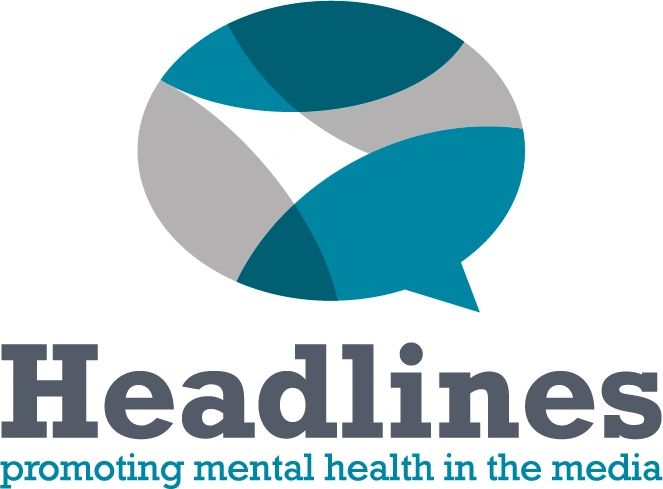
Coping with newsroom stress
Headlines Network is launching a series of workshops this week to help journalists cope better with mental health issues. I talked to director John Crowley about the problems and possibilities inherent in the pandemic.
The pandemic has thrown a new spotlight on stress in newsrooms — and across journalism in general. Not every journalist works in a newsroom — and even among those who do, their “newsroom” might now be virtual. Many publishers are trying to figure out how to adapt now that it’s been proven that people can do their jobs working from home. Some, like Reach, have got rid of many of their offices. Others are pushing everyone to return.
The majority of companies are muddling through with a hybrid model. But uncertainty breeds stress.
“How do we get it right for the people who come into the office that can meet and interact and work with each other?” asks John Crowley, director of the Headlines Network, founded by Hannah Storm, which works for better mental health in the newsroom.
“And those days that they are in, how do we make sure that people who aren't in work aren't feeling any kind of FOMO by being left out?”
Distributed, not remote
He’s not an advocate for remote working, preferring to consider it distributed working: choosing to work wherever’s most appropriate. It could be at home, or in the office, or wherever the story is. As a former digital editor at the Wall Street Journal and editor-in-chief of International Business Times UK, he’s had plenty of experience wrangling journalists.
“I think the proof that distributed working works is a boon, but we need to accept that we may need to go back into a place where we all congregate together. Why? For those moments of serendipity where you can sit down and sort things out — or come up with new ideas.”
But that tension isn’t just creating stress for staff, it’s creating headaches for newsroom leaders, too.
Culture challenges
“How do we create a good culture for our staff who are in that particular day? How do we create a good culture for all our staff?” says John.
“This is incredibly stressful for the people coming back, but also for newsroom managers.”
This is one of the reasons the Headline Network is running a series of workshops about improving mental health in the media, which start this week. They have been divided up into different cohorts, including newsroom leaders and new managers.
“We're also doing it for mid-career journalists," says John." You and I might call ourselves kind of mid-career, Adam. You might have kids. Likewise, you might have responsibility for your parents. You might have other things going on in your life.”
And the workshops need to acknowledge the different life circumstances people are dealing with.
Transforming the newsroom
But there’s an underlying agenda here, one that’s more about allowing the industry to shift, rather than just aiding individual members.
“First and foremost, the pandemic is a health emergency, and it continues to be one,” he says. “But it's also an opportunity for journalism to look at itself, hit the reset button, perhaps, and reinvent itself for a new era.”
As with so many industries, it’s also accelerated digital transformation.
“Instead of having five years to change the way we worked, it happened in five months, so there's been a kind of big bang,” says John. “I think what we need to sort out the way of working we want, as the table which was flipped up in the air comes back down again.”
The downside of home working

Working from home is no panacea, and for some people might actually be aggravating their stress.
“As a young working parent, it can be great — but it can also be an albatross around your neck. You’ve spent time with your children, they're gone to bed at 8:00, and suddenly, you find yourself thinking ‘I can now work from 8pm until 11pm and kind of catch up’.”
That’s not right. We need to be able to switch off.
We all hated our commutes, but they acted as a clear demarkation between our working day and the rest of our lives. In a hybrid work situation, you lose that.
“Commuting could actually be a signal that the day’s over, and it’s time to down tools, as we all used to when our parents and grandparents worked in factories” says John. “When the whistle blew, you knew it was the end of the day.”
We don't have that signal now. We're just mixing the work and play we’re doing on our phones.
The abandoned freelancers
The stress on other groups is different. The pandemic abruptly deprived many freelancers of both regular social interaction and income, as they were stuck at home and contracts dried up. That was why John was one of the group that founded the Society for Freelance Journalists — an active Slack group for freelancers.
“It was a situation where many people’s work had fallen off a cliff in March 2020 and at least having someone else say I'm in the same boat made it slightly easier to bear.”
The past 20 months have been a brutal time right across the profession, with many journalists exposed to stress from failing business models, online harassment, vicarious trauma, job insecurity, and even macho news environments that were unsympathetic to people struggling with an unprecedented crisis.
“You know, one journalist said in the report that I did last year that journalism in the time of COVID felt like they were stuck in a pandemic bubble. They just couldn't get any distance from it, and was working 12 hours days covering unremittingly bad news. It really took its toll.”
A more sympathetic newsroom?
Terms like “burnout” and “depression” spring to mind, but they carry very negative connotations in many newsrooms.
“Being able to soak up pressure is seen as an integral part of being a journalist,” says John. “My colleague Hannah describes it as putting on an emotional flak jacket.”
But an ability to escape and decompress is still vital. Journalists whose work was pretty safe normally found themselves going out and speaking to people in the midst of a pandemic, at risk to their health. It was a challenge they were unprepared for, unlike, say, war correspondents.
“Look, we’re not comparing ourselves to first responders or anyone in health where they're actually treating people. But journalists are out there,” says John. “Do they elicit sympathy from the public? Probably not, and in some ways because of the actions of some of our so-called colleagues, that's justified.
“But we're not looking for sympathy. We do need to practise our own self-care and be supported in that. No-one else is going to do it for journalists apart from journalists themselves.”
Rethinking journalism working practices for the digital age

And, ironically, the same situation that has created so much stress might have planted the seeds of the solution.
“One of the unintended consequences of COVID is this kind of slightly strange hybrid situation, while it’s coming to an end, but lots of things are up for grabs,” explains John. “It's a real opportunity to wipe the slate, look at things and ask how we can do things better? “
One thing that does need to change is the excesses of newsroom culture. For generations, senior managers have instilled a certain aggressive culture in their staff, who then repeat the cycle. But that could be about to change.
Newsroom bullying
“I've seen people so-called nice people go in and be changed by that culture. I'm not saying that they didn't have a role in that, but they've turned into bullies themselves. It was just kind of a given that the demands of a high paced work environment does that, and they wouldn't call it bullying.”
But the constant demand for copy, for exclusive, for explanations as to why competitors got the story first can very easily tip over into bullying.
“It’s a culture of getting to the story first, breaking the exclusive, and then the management style that supports that. The way that's done is very macho. Very in your face,” says John. “And the people who were doing that and got to the top have almost traumatised themselves.”
The war for journalistic talent
The attrition of journalism businesses during the pandemic has not been as bad as many feared. And that means many businesses are recruiting again.
“A huge amount of money is being spent on attracting young, diverse talent into the newsroom,” says John. “So you have this bright, shiny shopfront to attach the talent to broaden the representation and diversity of people who commit journalism.”
Increasingly, though, as Gen Z enters the workplace, they’re not falling for it.
“Knowing their feelings around mental well-being, and without making huge sweeping generalisations, I would say they won't put up with it as much as perhaps my generation would have done,” admits John.
“They're going into, and they're saying well, no, there's that bright shiny shopfront that we walked in. And then inside, it's all horrible and toxic. And so, they leave. And go and do something more interesting.”
Put your money where your opinion columns are
“We’re so ready to preach to people about mental health through our news pages, and yet we need to hold ourselves to a higher standard,”
And there’s a hard business reason for this, too. Hiring new talent is expensive. Retaining the talent you hired is much cheaper than having to keep hiring. And it almost certainly impacts the quality of the product in the long term:
“If you've got a toxic culture here and loads of people are leaving, or taking days off, you're not going to produce great content, and that's why you need to address it.”
Join the workshops:

Sign up for e-mail updates
Join the newsletter to receive the latest posts in your inbox.









